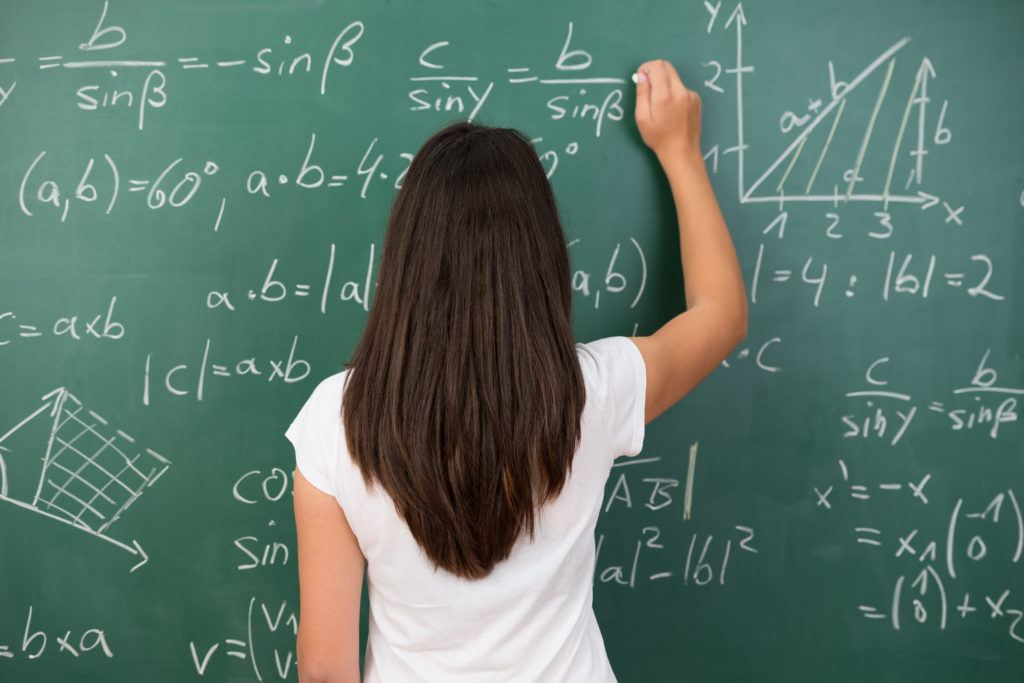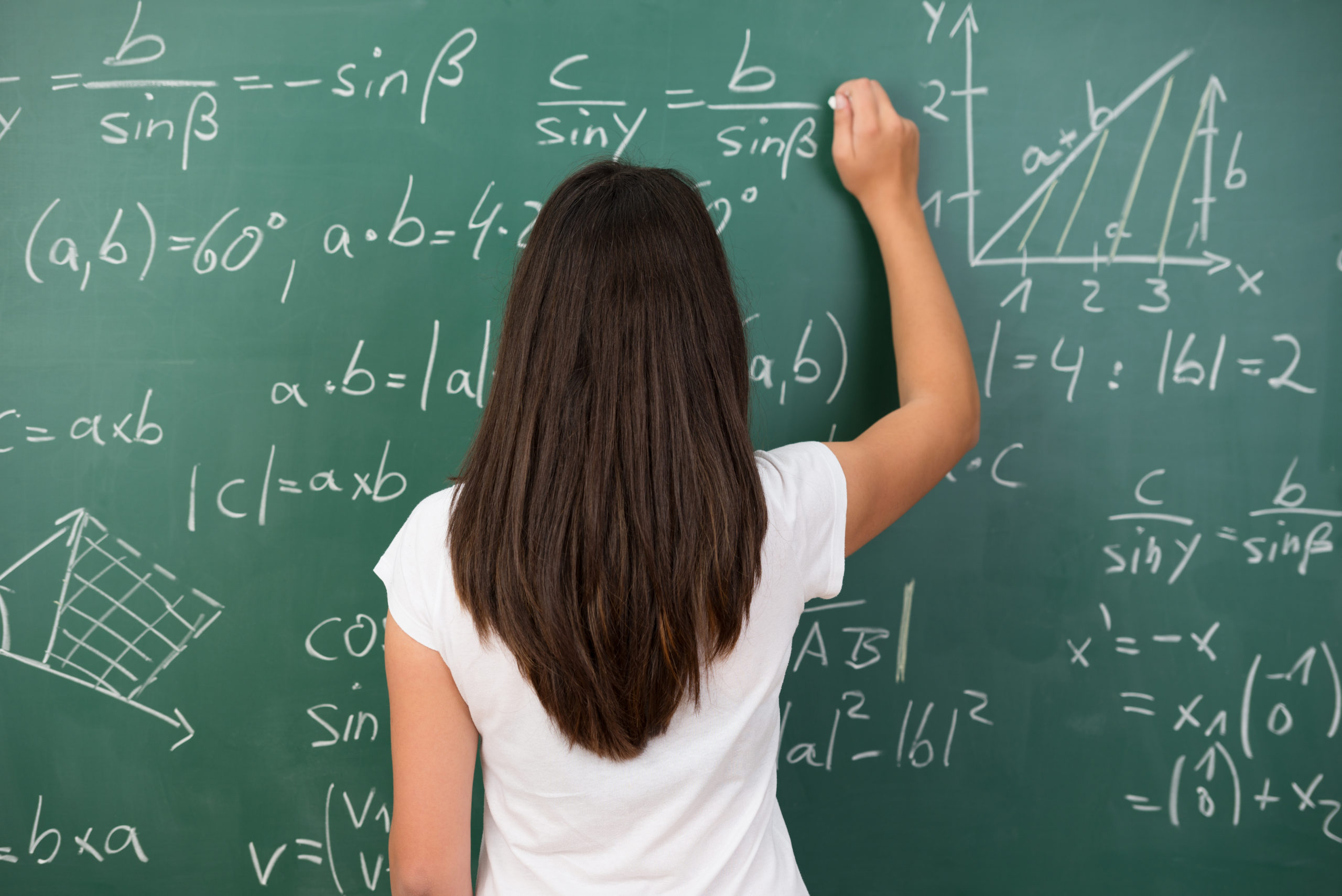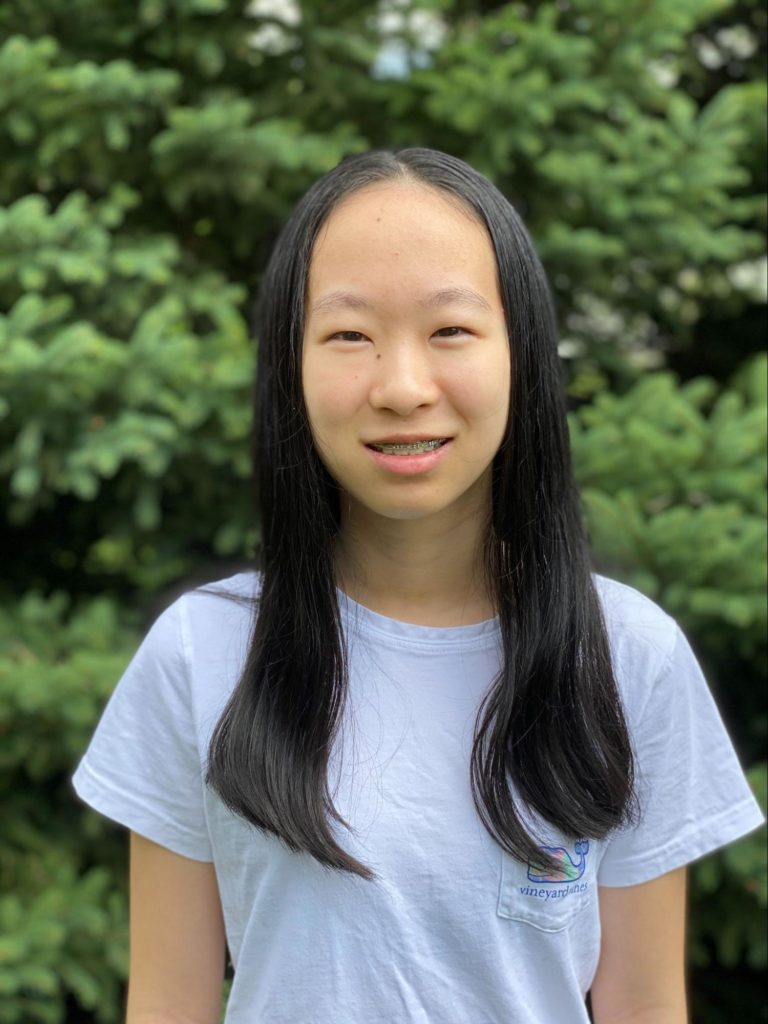
We are proud to share this guest post by Hannah Guan, founder of San Antonio Math Include and student at BASIS San Antonio—Shavano Campus, about volunteering to support math education.
Mathematics is the universal language and the science of all sciences. While the U.S. Bureau of Labor Statistics indicates that employment in math-heavy occupations will increase by 28 percent between 2016 and 2026, 93 percent of Americans report experiencing some level of math anxiety, beginning as early as first grade (2019 National Competitiveness). The 2019 National Assessment of Educational Progress (NAEP) shows that only 34 percent of eighth-graders tested proficient in math at their grade level. In a competitive global market, students shying away from careers involving calculation and computation will weaken the U.S. workforce and hurts its position in a global economy.
In my hometown, San Antonio, Texas, where the majority population is made up of minorities, not all students have the same access to educational resources. Going to a well-maintained school with an advanced curriculum while also volunteering at a Title I school, I have observed this inequality firsthand. When compared to other high-population metropolitan areas, San Antonio seems to be even more lacking in educational resources. For instance, when I was just beginning to explore the world of competitive mathematics, my mom would have to drive me all the way to Austin to participate in mock competitions and math circles. Without a dramatic change in our education system, low-income and under-resourced communities will be left behind by a digital and educational divide that has only widened during the pandemic.
Launching San Antonio Math Include
To confront this problem, I founded San Antonio Math Include, a nonprofit organization dedicated to teaching problem-solving, collaboration, and lifelong learning to all students. We began in 2018 with only 6 tutors and 40 students, and in only four years, my vision grew SaMi to one of the largest student-founded STEM platforms in the nation for youth to reach their full potential through education. The San Antonio Business Journal awarded me their Rising Star Award to recognize my extraordinary leadership at such a young age.
We offer free classes during the school year and free summer camps to all students in K–12 around the world, teaching math, computer science, and Artificial Intelligence to students in under-resourced communities. Since the beginning of the pandemic, we’ve awarded Casting Your Future Scholarships to socioeconomically disadvantaged students affected by the digital divide. Our school year program covers a complete K–12 math curriculum, including K–1, 2–3, 4–5, Pre-Algebra, Algebra 1, Algebra 2, Pre-Calculus, and Calculus. All classes are free to students and offered in multiple sections each week to provide maximum flexibility to them. Providing equitable access to education and supporting tolerance of those who have different backgrounds and cultural perspectives are essential to creating a positive effect on our society.
Summer Learning in Math
Our Summer@SaMi Free Camp program helps students build their math skills (and confidence) while filling any gaps in their learning and giving them the tools to succeed. A driving force behind starting Summer@SaMi was the desire to help students avoid the summer slide, a well-recognized phenomenon where students, particularly those from low-income backgrounds, lose some of the content they mastered in the prior school year when that learning is not reinforced over the summer. In 2020 and 2021, due to school closures and digital learning resulting from the COVID-19 pandemic, the impact of the summer slide was greater than ever. Preliminary estimates by experts suggested that it was likely to be larger in math than in reading, with many students losing 50 percent of their learning gains in math and as much as a full year in some grades.
To counter this potential effect, I decided that Summer@SaMi needed to be offered online in these two years so that students would not fall even further behind. A summertime brain boost seemed more necessary and valuable than ever. The core courses progressed from three levels of elementary math to Pre-Algebra, Algebra 1, and Algebra 2. The enrichment courses integrated math games and fun in math learning to keep students interested and engaged in math education. The camps were held in the last three weeks right before the start of the new school year to keep the material fresh and help prevent the Covid summer slide.
In addition to school-year and summer programs, we have also hosted the Celebration of Inclusive Excellence Conference, bringing together hundreds of students in San Antonio to promote diversity, equity, and inclusion in STEM education. At this conference, we award gifts to high-performing students and tutors to incentivize continued learning in math.
Science and technology fields affect almost every aspect of our lives from the food we eat to the cell phones we use. Innovations are not spontaneously created; they come from the ingenuity and intelligence of talented individuals working together to problem-solve and achieve goals. Having diversity, equity, and inclusion will improve the balance of views and perspectives in STEM education and research. A well-balanced world will accept different opinions and reduce fears towards differences and can improve the average STEM competency in society. I hope to have more students and volunteers join SaMi to help me in creating the bright future of our country.
Charter Moms Chats
Watch Hannah Guan, student at BASIS San Antonio—Shavano Campus and founder of San Antonio Math Include, speak with Inga Cotton on Charter Moms Chats on October 27, 2021 at 4:30 PM Central live on Facebook and YouTube.
Hannah Guan is a junior at BASIS San Antonio—Shavano Campus in San Antonio, Texas. She was an international math champion at the 2018 Primary Mathematics World Competition in Hong Kong and currently participates in the USA Mathematical Olympiad. She founded San Antonio Math Include to provide greater access to math education to all students from different backgrounds, experiences, and cultural perspectives across the country and around the world.
Read More About Math Education
- “Outdoor Math Games for Kids,” Ellen Castro, San Antonio Charter Moms, July 22, 2021
- “Measuring Height: A Preschool Math Activity,” Moses Perez, San Antonio Charter Moms, April 23, 2021
- “Rising Star Award, Hannah Guan, CEO, San Antonio Math Include,” San Antonio Business Journal, 2020
- “Early Learning Activities with Mrs. Gupta,” Anindita Gupta, San Antonio Charter Moms, August 7, 2020
- “Discover Math All Around Us,” Ambika Dani, San Antonio Charter Moms, June 10, 2020
- “Oh Snap! Math Games,” Vicki Leach, San Antonio Charter Moms, June 5, 2020
Read More About BASIS Charter Schools
- “Guide to Enrolling in BASIS Schools in San Antonio for 2022–23,” San Antonio Charter Moms, October 21, 2021
- “Composing an Exceptional English Program at BASIS Charter Schools,” Robin Martin, Kim Kinne, and Mark Petrie, San Antonio Charter Moms, May 25, 2021
- “Senior Projects at BASIS Charter Schools,” San Antonio Charter Moms, March 30, 2021
- “Kitchen Chemistry: Snowstorm in a Bottle,” Audrey Hagopian, San Antonio Charter Moms, January 29, 2021
- “Kindergarten Is More Important Than You Think,” Eric Wiederlight, San Antonio Charter Moms, January 26, 2021
- “BASIS Charter Schools Reopening Plan: Families Choose in 2020–21,” San Antonio Charter Moms, August 13, 2020
- “Kitchen Chemistry: Weather Science,” Audrey Hagopian, San Antonio Charter Moms, July 21, 2020
- “Kitchen Chemistry: Elephant Toothpaste,” Audrey Hagopian, San Antonio Charter Moms, June 16, 2020

